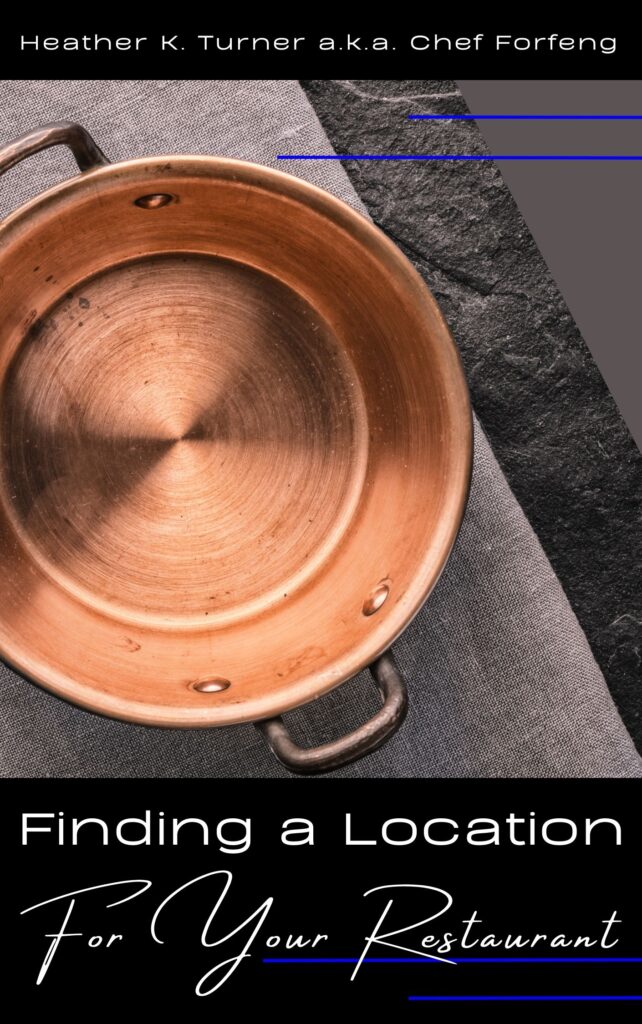Exit Strategies for Bed and Breakfasts
 The Importance of an Exit Strategy for B&Bs
The Importance of an Exit Strategy for B&Bs
I had written this up a few years ago. The Midwest Association of Independent Inns contacted me recently, asking for information, articles and other information I might have bookmarked, specifically for Bed and Breakfasts on exit strategies, to include in their newsletter. I found this in my archives and realized I had never shared it before.
While most of this is typical advice you can find in many exit strategy guides, I included some suggestions on how you can let guests and future guests know your inn might be, or is for sale, without being blatant about it which I have not seen in most checklists.
Our blog topic for a future post will be on questions to ask a business broker before engaging them to sell your business.
- Plan well in advance, ideally years before intended sale. The best time to start preparing for a sale is when you have the energy to start putting together the information for it, even if it is for years down the road.
- Regularly assess business and lifestyle goals to ensure alignment.
- Avoid burnout and declining property value, which can significantly affect the sale price. Keeping an eye on the interest rates and the market can give you a heads-up in advance about when it’s time to sell.
- An exit strategy may change over time, so revisit periodically. An exit strategy is not just about selling, but about preparing for your next phase of life. It allows you to maximize the value of your inn or B&B, and ensures a smooth transition for you, your staff, and your guests.
Establishing Goals
- Consider plans for the property (keep in the family, sell it outright, etc.) and discuss with family members if applicable.
- Evaluate personal career/lifestyle goals, including retirement plans or new ventures.
- Assess if innkeeping still meets your needs; consider if minor changes could reinvigorate your passion. Why did you get into innkeeping in the first place?
- Think about your ideal timeline for exiting and how flexible you can be. Goals should be SMART: Specific, Measurable, Achievable, Relevant, and Time-bound. Be honest with yourself about what you want and need, as this will guide your entire exit process.
Alternatives to Selling
- Hire managers or a management company to reduce your day-to-day involvement.
- Close the business, but keep the property if you have an emotional attachment to the building.
- Family succession requires careful planning and open communication, start sooner rather than later.
- Bring in partners to share responsibilities and potentially set up future buyout.
- Manage-to-own agreements can help transition to new owners over time.
- Leasing options allow you to retain ownership while stepping back from operations.
- These alternatives can provide flexibility and may be useful if market conditions aren’t ideal for selling.
- Each option has its own legal and financial implications, so consult with professionals before deciding.
Preparing to Sell
- Get financials in order; clean and up to date books are crucial for buyer confidence and accurate valuation.
- Prepare your property by addressing deferred maintenance and enhancing curb appeal. Even small fixes and improvements can make a huge difference when showing the property.
- Consider professional inspections to identify and address issues proactively.
- Prepare yourself mentally for the emotional process of selling and transitioning. For many innkeepers, their property has not just been their business but also their home of many years.
- Preparation can take months or even years, but it’s crucial for maximizing your inn’s value. Remember, potential buyers will scrutinize every aspect of your business, so attention to detail is key.
Valuing the Inn
- Use multiple tools like Capitalization Rate, Gross Revenue Multiplier, Price Per Guest Room**
- Consider hiring an appraiser for an objective valuation, especially for unique properties
- Understand that emotional value doesn’t always translate to market value
- Be prepared to justify your asking price with data and comparables. Valuation is both an art and a science. While formulas provide a starting point, factors like location, property condition, and market trends all play a role. Be realistic but don’t undervalue your years of hard work and goodwill.
** https://calculator.academy/cost-per-occupied-room-calculator/, https://www.cloudbeds.com/tools/adr-calculator/, https://www.siteminder.com/calculate-your-occupancy-rate/, there are many more if you browse Google for ADR, ALOS, RevPAR, GOPPAR, CPOR, NOI and more.
Marketing & Advertising
- Work with an experienced inn broker on a comprehensive marketing plan. (Questions to ask a broker coming next week)
- Advertise in industry-specific publications and venues where potential buyers look.
- Carefully consider how open to be about the sale to protect current business.
- Consider advertising on social media or listing your business on niche groups where a potential buyer could be waiting as well as state and local groups. Some states have robust listserve newsletters that go out to thousands of people every day. In New Hampshire and Vermont for example there are several dozen town and area ones https://lists.vitalcommunities.org/lists/lists as well as regional ones https://vitalcommunities.org/new-uv-lists/.
- Prepare a detailed prospectus highlighting the inn’s strengths and potential.
- Effective marketing can significantly impact your sale timeline and price. A well-crafted narrative about your inn’s history, unique features, and growth potential can attract serious, qualified buyers.
- On your website, consider adding a subtle section that speaks to the future of the business: “Interested in joining our journey? Get in touch to learn more about potential opportunities to be a part of our continued story.” This can draw in people who may want to invest or inquire about ownership, without having an public or overt “for sale” message.
- Consider you may have guests that might be interested in being innkeepers. While many innkeepers are reluctant to advertise that their B&Bs are for sale because they are afraid guests might be reluctant to book, keep in mind, being open to selling and subtly putting out there you are open to offers if a good one came along has paid off for some business owners.
A few ways an innkeeper could subtly suggest a property for sale to guests.
When speaking with guests, you could emphasize exciting future opportunities for the B&B without directly mentioning a sale. “We’ve built such a strong business here, and we’re excited about the possibilities for the B&B to grow and evolve in the future.” This plants the seed that the business could be taken over by someone who shares your passion for innkeeping, without openly discussing a sale.
In conversations or marketing materials, frame the business as a “legacy” that could be carried on by someone with fresh ideas. “We’ve loved being a part of this community for years, and we’re excited to see how the next chapter for this B&B unfolds.” This approach communicates that a transition could happen, but focuses on the continuation of the guest experience rather than the sale itself.
You can present the idea of potential partnerships or expansion opportunities without saying it’s for sale. “We’ve been thinking about how someone could bring fresh energy or ideas to take this place even further.” This potentially opens the door for guests or acquaintances to inquire if they’re interested, but doesn’t sound like you’re making a direct sales pitch.
When writing newsletters or posting on social media, highlight positive guest experiences and mention how valuable and rewarding running the B&B has been. Subtly hint that it’s an ideal lifestyle for someone looking to build on what you’ve created: “We’ve loved creating memories here for guests, and this B&B has become such a beloved part of the community. We’re excited to see how it continues to bring joy to so many.” This sends the message that it’s an established, well-loved business, which could attract attention from prospective buyers who may follow up privately.
The Sale Process
- Understand regional differences in the sequence of transactions.
- Be prepared for a potentially lengthy negotiation process. Many months and some times a year plus long process.
- Consider tax implications early and consult with a tax professional.
- Explore various financing options, including potential seller financing.
- The sale process can be complex and time-consuming. Patience and flexibility are key, as is maintaining the quality of your inn operations throughout the process. Remember, the deal isn’t done until the closing documents are signed.
Transition to New Owners
- Provide detailed operations manual and hands-on training if agreed upon.
- Help with staff transition (if applicable) to maintain continuity and preserve institutional knowledge.
- Help with vendor transition (if applicable) to maintain continuity. You might have guests that love your L’Occitane or Beekman 1802 amenities. Introduce them to your sales rep to make the transition easier if they choose to continue with them.
- Introduce new owners to key community contacts to support their success.
- Be prepared for emotional challenges of letting go; consider personal counseling if needed. I’ve talked to so many innkeepers who don’t realize how much of a heartbreak it can be to sell a business (and home) that they have put their hearts into, sometimes for decades.
- A smooth transition benefits everyone: you, the new owners, your staff, and your guests. While it can be emotionally challenging, a well-managed transition can preserve your inn’s legacy and set the new owners up for success.
Key Professional Help
- Inn brokers or consultants with specific experience in hospitality properties
- Accountants familiar with hospitality businesses and related tax issues
- Lawyers experienced in business and real estate transactions
- Appraisers with hospitality industry expertise, if needed for valuation or financing. The right team of professionals can make the difference between a stressful, protracted sale and a smooth, profitable transition. Their expertise can help you navigate complex issues, avoid pitfalls, and maximize your inn’s value.
Worth a read for more information about the following links. 8 Business Valuation Calculators from Small Biz Trends.
++2 of the calculators referenced in the original article are no longer online. The article doesn’t give all of the links to the calculators so including them below.
CalcXML
https://www.calcxml.com/calculators/business-valuation
EquityNet
https://www.equitynet.com/crowdfunding-tools/business-valuation-calculator.aspx
ExitAdviser
https://exitadviser.com/mob/value-calculator
BizEx
https://www.bizex.net/business-valuation-tool
Digital Exits
https://digitalexits.com/whats-your-business-worth/
Hadley Capital
https://www.hadleycapital.com/insights/business-valuation-calculator
MassMutual Financial Group
https://www.massmutual.com/financial-wellness/calculators/business-valuation-planner
National Life
https://www.nationallife.com/Financial-Calculators-Value-of-My-Business


